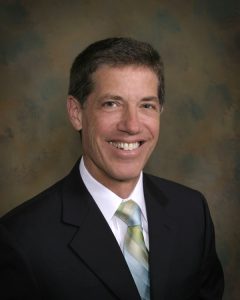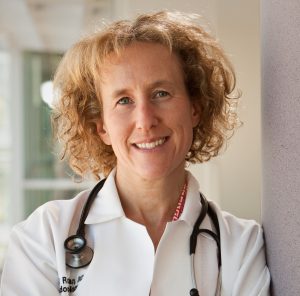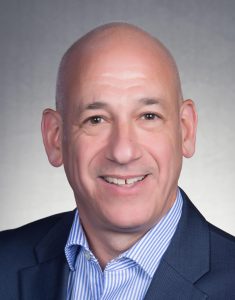Stephen M. Rosenthal, MD; Micol S. Rothman, MD; and Joshua D. Safer, MD, FACP, talk to Endocrine News about their ENDO 2019 Meet-The-Professor session on treating transgender patients and how they hope to further educate endocrinologists who are more likely than ever before to encounter these types of cases.
ENDO 2019 is next month, and that means it’s time to start solidifying plans for New Orleans – restaurants in which to dine, jazz clubs in which to cut loose, sessions to attend. One of the highlights this year is a Meet-The-Professor session on Monday, March 25, titled “Challenging Cases in the Endocrine Management of Gender Dysphoria/Gender Incongruence.”
As the name suggests, the 45-minute session will feature three cases of endocrinologists treating transgender patients, pediatric and adult, presented by three leaders in the field: Stephen M. Rosenthal, MD, professor of Pediatrics and medical director of the Child and Adolescent Gender Center at the University of California, San Francisco; Micol S. Rothman, MD, associate professor of medicine and co-founder of the UC Health Integrated Transgender Program at the University of Colorado School of Medicine in Aurora; and Joshua D. Safer, MD, FACP, executive director of the Center for Transgender Medicine and Surgery at Mount Sinai Health and Icahn School of Medicine at Mount Sinai in New York, N.Y.
This is a relatively new field in endocrinology, but it’s growing quickly, as more people are identifying as transgender and becoming comfortable enough to see physicians for their care. A June 2016 study from the University of California Los Angeles School of Law’s Williams Institute found that about 0.6% of the U.S. adult population identifies as transgender. “This figure is double the estimate that utilized data from roughly a decade ago and implies that an estimated 1.4 million adults in the U.S. identify as transgender,” the authors (Flores, et al) write.
But while the number of individuals identifying as transgender or gender non-conforming grows, the fact remains that these people still face barriers to optimal care, whether they report mistreatment or negative experiences with their healthcare providers, are denied insurance coverage for transition-related treatment or medications, or fear seeking medical care at all.
The presenters point out that a 2017 Mayo Clinic and Endocrine Society anonymous survey showed that of the practicing U.S. Society members who responded, 80% had treated a transgender patient but 81% had never received training in transgender health management. Endocrinologists have the opportunity to be the go-to resource for transgender patients and as the transgender population grows, so too does the likelihood that a practicing endocrinologist will treat a transgender patient.
Endocrine News caught up with Rosenthal, Rothman, and Safer to discuss their presentations and the Endocrine Society’s role in optimizing care of transgender patients.
Endocrine News: Since this is a preview of the upcoming Meet-The-Professor session, what can you share about your talk?

Rosenthal: There’s been a longstanding commitment of the Endocrine Society, recognizing that the number of people seeking services who identify as transgender has steadily increased. I’m a pediatric endocrinologist. The patients that we see range from toddlers, whose parents are not seeking medical services, but primarily emotional support, all the way through young adults. We take new patients up to about 21, and then we’ll follow patients into their mid-20s.
We came up with three cases. One of them is more pediatric adolescent focused; the others are more adult focused. I think that the idea would be that each of the three of us would lead a discussion on one of the three cases. Then, work together as a panel to provide different perspectives on different questions that would come up as people bring their own concerns or questions to the discussion.
Rothman: We will cover some of the basics of gender-affirming hormone therapy (GAHT) but we will present three more complex cases for discussion that address some of the less well studied aspects of GAHT that many endocrinologists are seeing in their practice such as: adolescent patients, non-binary patients and patients who may ask about regimens they learn about online.
Safer: Because endocrinologists are likely to be called in for more difficult hormone treatment decisions for transgender individuals, the session is meant to provide an opportunity to talk through scenarios that might arise.
“Primary care providers can take care of many transgender patient needs, but our role is to be experts in hormone management and serve as consultants for more challenging cases. This is what we are trained in and what we do well. I would love to see more endocrinologists on the forefront of research and education in this area.” – Micol S. Rothman, MD, associate professor of medicine; co-founder, UC Health Integrated Transgender Program, University of Colorado School of Medicine, Aurora, Colo.
EN: How do you view the current the state of the care of transgender people?
Rosenthal: If you’re a patient, it’s a bit anxiety-provoking if you feel, because maybe of your own background work, that you end up knowing more about what you need than the provider that you’re going to end up seeing. It just underscores the need for increased training or educational opportunities.

Rothman: Although many endocrinologists are now providing GAHT, data suggest they still desire more education and training to feel comfortable with caring for gender-diverse patients. A recent survey of fellows who attended Endocrine University indicates that trainees consider this an important area and one where they would like more didactics sessions and clinical experience. (Endocrine Practice 2018, Davidge-Pitts, et al).
Safer: It is still the case that transgender people report unknowledgeable providers. However, where 10 years ago, the norm might have been for endocrinologists to look for centers where their patients might go, more often now endocrinologists are keeping the patients and simply asking for guidance with challenging situations.
EN: What are some gaps or potential pitfalls that need to be addressed, short term and long term?
“It is still the case that transgender people report unknowledgeable providers. However, where 10 years ago, the norm might have been for endocrinologists to look for centers where their patients might go, more often now endocrinologists are keeping the patients and simply asking for guidance with challenging situations.” – Joshua D. Safer, MD, FACP, executive director, Center for Transgender Medicine and Surgery at Mount Sinai Health and Icahn School of Medicine at Mount Sinai, New York, N.Y.
Rosenthal: I can give you an insight on the pediatric and adolescent side of this. For early pubertal youth and for adolescents, all of these medications involved in gender care are “off-label.” Some estrogen and testosterone preparations are not that expensive, but pubertal blockers are.
Puberty takes three-and-a-half to four years from start to finish. If you put somebody on a blocker after they’ve been in puberty for maybe six to 12 months, you’re still intervening at a relatively early stage in the whole process. Typically, before the person has developed some of what are often thought of as irreversible physical characteristics. One of the benefits of a blocker is if it’s used early enough after puberty has started, you can avoid having to go all the way through the wrong puberty and prevent experiencing some of the irreversible physical changes associated with that.
No one ever recommends using a pubertal blocker in a really young kid to try to prevent the onset of puberty. A pubertal blocker is never meant to block the onset of puberty. It’s just meant to block the progression of puberty once it’s started because once it’s started, then there’s a much greater predictability of that person’s gender identity.
These medicines have been used for more than three decades for a different clinical context, which is the treatment of precocious puberty. [Pubertal blockers] are approved for precocious puberty, but they’re not currently FDA-approved for use in transgender youth. These are not inexpensive medications. They could be in the $20,000 to $30,000 range, and some insurance companies will deny them. That is the kind of thing that isn’t really highlighted in the Endocrine Society clinical practice guidelines. You might have somebody coming in who says, “I’m having trouble getting access. What do you recommend?” Those are the kinds of things that we’ll talk about, because there are other approaches.
Rothman: Many patients still do not have access to knowledgeable providers. Survey data indicates that many patients still are denied care by insurers or providers and negative experiences in a healthcare setting are unfortunately still all too common. There are data that suggest access to a trans-inclusive provider can help ensure patients have primary care needs met, such as wellness checks or cholesterol screening.

Safer: One of the current challenges is addressing the internet myths that have developed in a field neglected by the medical establishment. Gaining the credibility to push back on problematic internet myths will be important.
Another challenge is to avoid getting lulled into believing that holding estrogen will actually protect a patient from thrombosis risk. The risk of thrombotic event from estrogens is small. If a patient has significant thrombosis risk, simply holding estrogens may not only be unnecessary, it also is likely to be insufficient, with the patient requiring a more serious protective intervention.
“If you’re a patient, it’s a bit anxiety-provoking if you feel, because maybe of your own background work, that you end up knowing more about what you need than the provider that you’re going to end up seeing. It just underscores the need for increased training or educational opportunities.”- Stephen M. Rosenthal, MD, professor of Pediatrics; medical director, Child and Adolescent Gender Center, University of California, San Francisco
EN: What do you hope attendees will take away from your presentation?
Rosenthal: Maybe some reduced discomfort, having gained a bit more knowledge. There are likely two groups of people that will be there: Some who haven’t yet had the experience of providing care for a transgender person, and some who have and are looking to learn more. My hope would be that for each of those two groups, they feel that they’ve gotten something out of it.
Rothman: My main hope is that endocrinologists will not only provide GAHT but become more comfortable taking leadership roles in this area. It is very exciting that Dr. Vin Tangpricha just began his term as president of the World Professional Association for Transgender Health and many other endocrinologists are emerging as national and international leaders. There are many research questions that remain regarding long-term outcomes, best practices, and care of patients over the lifespan. Primary care providers can take care of many transgender patient needs, but our role is to be experts in hormone management and serve as consultants for more challenging cases. This is what we are trained in and what we do well. I would love to see more endocrinologists on the forefront of research and education in this area.
Safer: Attendees should have increased confidence in approaching hormone treatment of transgender individuals. The session will allow attendees to see how current experts approach the more common conundrums in the field and test their own thinking for such circumstances.
— Bagley is the senior editor of Endocrine News. He wrote about targeting cellular senescence in age-related osteoporosis in the January issue.

